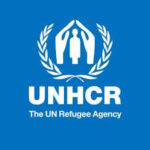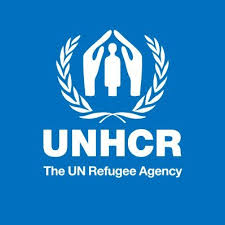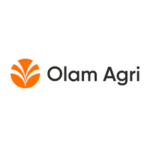
Deadline for Applications
November 25, 2024
Standard Job Description
Economist
Organizational Setting and Work Relationships
Framed by the Global Compact for Refugees (GCR) and UNHCR’s mission to find solutions to refugee situations, strengthened cooperation with development and private sector partners is essential. The increasing number of refugees and internally displaced persons in protracted displacement situations, together with the increasing scale of irregular migration, large-scale refugee movements, and costs of responding to humanitarian situations, have placed forced displacement high on the global agenda. These elements have further driven the realization that humanitarian support must be complemented by development and private sector actors to lift displaced populations out of poverty, enable solutions, and encourage an area based approach to poverty reduction.
Within UNHCR, the Division of Resilience and Solutions (DRS) was formed to address these challenges, in part by broadening strategic partnerships with key actors in these areas, including importantly the World Bank and other multilateral development banks and in so doing aligning approaches by Government. To support investments by development actors in area based approaches including both forcibly displaced and their hosts, requires better data and standardized information about refugees and host community households, particularly in relation to their socio-economic status or multidimensional poverty status. Accurate data on welfare conditions is also needed UNHCR and partner operational needs including cash, livelihoods, and education programming, welfare targeting and monitoring of the Sustainable Development Goals. Finally, comparable information for both refugees and host community member is a pre-requisite for measuring changes in welfare required to inform medium-term programming with development partners and national governments. DRS together with the World Bank Poverty Global Practice supported by the UNHCR World Bank Joint Data Center manage the partnership and play the global coordination role for the institution in working with National Statistics Offices to include forcibly displaced into National Poverty Assessments.
The Economist will contribute to the Global Compact for Refugees (GCR) objectives 1 and 2- Ease the pressures on host countries and Enhance refugee self-reliance. Concretely the Economist will contribute to the indicators measuring the success of the Global Compact for Refugees and particularly the Proportion of refugees living below the national poverty line in the host country. Depending on where the Economist is based the reporting lines will differ. If the Economist is based in Headquarters it will map to the DRS Partnership Analytics Research and Knowledge (PARK) section. If the Economist is based in a country or regional office, the Economist will report to either the Representative or Deputy Representative Programme, or in some cases Head of Sub-Office or Senior Operations Officer. In all cases a dotted line will be to DRS PARK for technical functional clearance of candidates and for technical oversight of economics products. The Economist will work closely with Programme and Protection colleagues in addition to Senior Management in the operation as well as Bureaux and technical unit key external stakeholders and development agencies, including the World Bank, government agencies, national statistical agencies, and other operational partners.
All UNHCR staff members are accountable to perform their duties as reflected in their job description. They do so within their delegated authorities, in line with the regulatory framework of UNHCR which includes the UN Charter, UN Staff Regulations and Rules, UNHCR Policies and Administrative Instructions as well as relevant accountability frameworks. In addition, staff members are required to discharge their responsibilities in a manner consistent with the core, functional, cross-functional and managerial competencies and UNHCR’s core values of professionalism, integrity and respect for diversity.
Duties
Project Management
- Lead the design and implementation of assessments and other data-driven products related to the socio-economic welfare of refugees, forcibly displaced persons and host communities, wherever possible through coordination with the National Bureau of Statistics and World Bank Country Economist in inclusion of forcibly displaced into National Poverty Assessment.
- Successfully manage all partnerships and activities in the collection of comparable socio-economic (poverty) data on forcibly displaced
- Contribute to defining and promoting a vision for the use of socio-economic data, particularly in planning, programming and advocacy at the country, regional and headquarters levels.
- Maintain a strong understanding of the state of literature on poverty analysis for forcibly displaced.
- Manage data collection activities, as appropriate. This may take place at all stages of data collection (preparation, survey design, sampling, onsite data collection oversight and supervision and quality assurance, data analysis and report writing).
- Conduct data analysis using econometric programs (R, Stata).
Data Collection and Analysis
- Consolidate raw primary and secondary datasets into final datasets to be used for analysis, as needed. This will involve creating and merging various sources of data and may require programming matching algorithms, linking up with field staff for additional information, and performing manual matching.
- Clean all datasets and create all necessary indicators. Work with the research team to design a thorough plan for data analysis and carry out the coding to perform this analysis. Common analytical tasks include production of descriptive statistics and regression analysis for various outputs such as briefs, presentations and academic papers.
- For any field survey, assist in programming the instrument and developing protocols to ensure high quality data.
- Properly prepare and document relevant datasets for archiving on the UNHCR Microdata Library.
- Lead the preparation of research papers including formatting and creating tables, graphs, and related analysis.
- Engage with country operation, partners and government, as appropriate, in the design and implementation of data collection and research projects.
Coordination
- Ensure good communication and coordination among members of the country team, Governments, researchers and partners, serving as a link between these parties.
- Lead drafting and writing of presentations, analytical reports and research and policy briefs.
- Participate in official missions and deliver capacity building and training activities for partners and governments.
- Identify research opportunities and contribute to proposals for research partnerships and funding.
- Reflect UNHCR’s positions on policy, advocacy and programming issues as they relate to the protection, resilience and solutions of refugees with medium-term economic and social development programmes.
- Represent UNHCR in negotiations and meetings relating to socio-economic profiling of forcibly displaced and wider partners research in country.
- Represent UNHCR in technical capacity with external actors.
- Support the identification and management of risks and seek to seize opportunities impacting objectives in the area of responsibility. Ensure decision making in risk based in the functional area of work. Raise risks, issues and concerns to a supervisor or to relevant functional colleague(s).
- Perform other related duties as required.
Minimum Qualifications
Years of Experience / Degree Level
For P3/NOC – 6 years relevant experience with Undergraduate degree; or 5 years relevant experience with Graduate degree; or 4 years relevant experience with Doctorate degree
Field(s) of Education
Economics, Statistics, or related field(s)
Certificates and/or Licenses
Not specified.
Relevant Job Experience
Essential
At least six (6) years of demonstrated experience in economics, analysing data and conducting research. Familiarity with processes of the World Bank, the African Development Bank or other international financial institutions, bilateral development agencies or research institutions.
Desirable
Familiarity with displacement and development issues. Experience of working with the private sector. Experience working in applied development economics. Experience in poverty modelling. Experience leading primary data collection effort and data analysis. Experience of working with synergies between the humanitarian-development nexus. Demonstrated skills and experience with measuring welfare through socio-economic profiling. Demonstrated experience with analysis of large datasets. Demonstrated expertise in utilization of relevant statistical software (R, Stata). Ability to work independently with limited supervision and deliver high quality products . Demonstrated ability to think creatively, and to explore, harness and translate innovative concepts into relevant practical approaches for programming, policy, and advocacy purposes. Demonstrated ability to think creatively, and to explore, harness and translate innovative concepts into relevant practical approaches for programming, policy, and advocacy purposes.
Functional Skills
CO-Drafting and Documentation
MG-Project Management
EC-Statistical and modelling software
IM-Statistics Analysis
DM-Data Collection and Analysis
(Functional Skills marked with an asterisk* are essential)
Language Requirements
For International Professional and Field Service jobs: Knowledge of English and UN working language of the duty station if not English.
For National Professional jobs: Knowledge of English and UN working language of the duty station if not English and local language.
All UNHCR workforce members must individually and collectively, contribute towards a working environment where each person feels safe, and empowered to perform their duties. This includes by demonstrating no tolerance for sexual exploitation and abuse, harassment including sexual harassment, sexism, gender inequality, discrimination and abuse of power.
As individuals and as managers, all must be proactive in preventing and responding to inappropriate conduct, support ongoing dialogue on these matters and speaking up and seeking guidance and support from relevant UNHCR resources when these issues arise.
This is a Standard Job Description for all UNHCR jobs with this job title and grade level. The Operational Context may contain additional essential and/or desirable qualifications relating to the specific operation and/or position. Any such requirements are incorporated by reference in this Job Description and will be considered for the screening, shortlisting and selection of candidates.
Desired Candidate Profile
As Per The Job Description
Required languages (expected Overall ability is at least B2 level):
,
,
Desired languages
English
,
,
Operational context
Occupational Safety and Health Considerations:
To view occupational safety and health considerations for this duty station, please visit this link: https://wwwnc.cdc.gov/travel
Nature of Position:
In 2016, Uganda became the first country to implement a Comprehensive Refugee Response Framework (CRRF) which emphasizes a holistic responsibility and burden-sharing approach towards socio-economic inclusion of refugees and host communities. Following the Global Compact on Refugees (GCR), Uganda continues to implement its open-door policy to protect those forced to flee, provides favourable protection environment (including right to work, freedom of mobility) and the integration of refugees into public service across sectors such as education, health, water, and sanitation.
Under the supervision of the Senior Development Officer, the Economist will need to provide relevant economic analysis and data analytics and effectively collaborate on data analysis projects to inform evidence-based advocacy for enhancing refugee inclusion in national systems including national statistics. The Economist will need to engage with the Government of Uganda, Development Partners including WB, IFC, AfDB and other bilateral donor agencies, UN agencies, NGOs, Private sector actors and foundations as well as relevant coordination structures for supporting development partnership in the refugee context of Uganda. The position requires good understanding about government functions and skills in the implementation of GCR and familiarity with private sector agencies in Uganda. Government of Uganda, as a co-convenor of GRF 2023, pledged five policy pledges and development partners committed matching pledges, mainly in the areas of resilience and self-reliance, Climate Change, Transition; Localization, Durable solutions. The Economist will need the skills to support the Government, UNHCR and DPGs to track the GRF pledges and Development Financing in the refugee context of Uganda and support the transition towards more sustainable programming.
Living and Working Conditions:
Kampala is a Family Duty Station Capital city with a large offer of comfortable houses and flats are available, bank services are excellent as well as a decent internet service and mobile coverage. Power supply might be irregular in some areas hence a generator or backup inverter might be necessary. Medical facilities including hospital of good quality are available as well as a large choice of International school and nurseries. Food and house supplies are available in supermarkets and markets and on-line purchase and home deliveries is efficient. No decent public transport is available, but Taxis/Uber are commonly used and car purchase is an easy option as the offer is wide.
Although Kampala and Entebbe are considered under a moderate security levels (Security levels III), many UN agencies and funds are headquartered in Kampala including UNHCR branch office to provide support on the mandate to protect and assist refugees of both Urban caseloads and those in settlements in the South west, Midwest and West Nile regions. Kampala is considered a family duty station with better social amenities- schools, recreation and health services. The major threat to staff includes and is not limited to prospects of terrorism allowed heavy security presence in both uniform and plain cloth, high road traffic accidents, common law crimes and spontaneous outbreaks of water born disease like Typhoid, cholera plus occasional political /civil unrest mostly contained by Government. The security management systems have put in place mitigation measures to avert the impact of the threats therein and is a collective responsibility of all staff members.
Skills
Additional Qualifications
CO-Drafting and Documentation, DM-Data Collection and Analysis, EC-Statistical and modelling software, IM-Statistics Analysis, MG-Project Management
Education
Bachelor of Arts (BA): Economics, Bachelor of Arts (BA): Statistics
Certifications
Work Experience
Competencies
Accountability, Analytical thinking, Client & results orientation, Commitment to continuous learning, Communication, Empowering & building trust, Judgement & decision making, Organizational awareness, Planning & organizing, Teamwork & collaboration, Technological awareness







